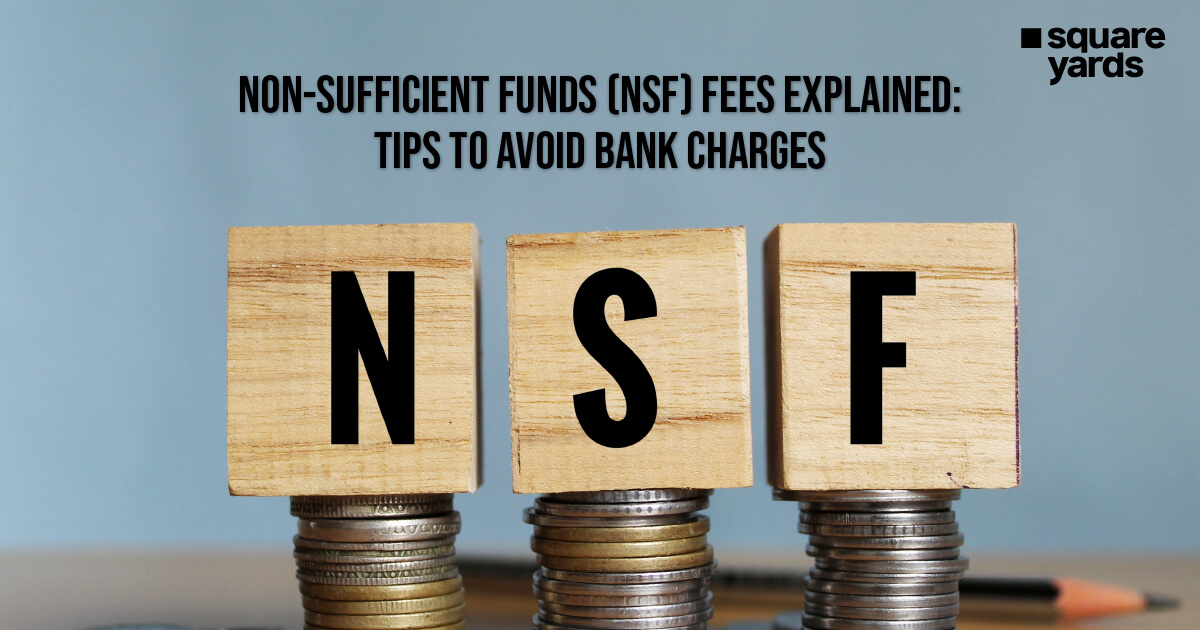As a home-based business owner, the line between personal and professional expenses often blurs, making every penny crucial to your success. Embracing the freedom of self-employment means enjoying the liberty to take an impromptu afternoon break. However, the flip side is stark – no work, no earnings. While some resort to couponing and bargain hunting for personal savings, a very good way to ensure that you don’t stretch too far down the account is by undertaking easy and agreeable cost-cutting with just a little bit of strategic planning. Let us explore some of the top cost-saving strategies tailored for your home based business in Canada. These strategies aim to bolster your bottom line without compromising on quality or efficiency.
Smart Strategies For Home Business Cost Savings

In the bustling world of entrepreneurship, especially for those of us steering the ship from the comfort of our homes, vigilance over our expenditures isn’t just prudent—it’s paramount. Think of cost-cutting not as penny-pinching but as a strategic manoeuvre akin to discovering buried treasure right in your backyard. This approach isn’t about compromising quality or cutting essential corners. Rather, it’s about smart, strategic decisions that make every dollar stretch further, ensuring your business isn’t just surviving but thriving. As home-based business owners, whether you are in the nascent stages of your home business or a seasoned professional, the insights we’re about to explore are golden.
Seeking Fresh Quotes
One smart move all home-based business owners can make is to regularly check if they’re getting the best deal on their business insurance. It’s easy to just let things roll over year after year, but did you know you might be leaving money on the table? For instance, if you haven’t compared insurance quotes recently, now’s the time. With services like iSURE, it’s super straightforward. You just pop in your details, and bam, you’ll see if you’re paying too much. They compare rates from top insurers, so you know you’re getting a good deal.
You should make it a habit to shop around for all your insurance every year—whether for your business, health, car, or anything else. Things change, new deals pop up, and insurers roll out new products all the time, especially for folks running businesses from home. What was a bargain last year might not be your best option this year. So, take a little time to check in with your insurance broker, review your coverage, and see where you might save some cash. It’s a simple step, but it could lead to significant savings for your business.
Economise with Used Furniture
Another great way to save money as a home-based business owner is by furnishing your office with used furniture. You’d be surprised at the deals you can find on websites like Kijiji and Craigslist. Every day, businesses list items like desks, chairs, and even electronics at significant discounts. Sometimes, these items are almost new, selling for just a fraction of their original price. This can be a game-changer for setting up or updating your home office on a budget. However, a word of caution: always see the item in person before you buy. It’s important to check the quality to make sure it meets your needs and doesn’t have any hidden issues. This approach is not just about saving money; it’s about being smart and sustainable with your business expenses. Buying used furniture can be a major cost-saving strategy, giving your home office the upgrade it needs without breaking the bank.
Trade Services And Barter
Bartering is a clever and cost-effective way for home-based business owners to save money. Instead of paying with cash, you trade something you offer, like a product or service, for something you need. It’s like hitting two birds with one stone—you get what you need and keep your cash in your pocket. Plus, if you establish a bartering relationship with a business you frequently use, the savings can add up over time. It’s a win-win for everyone involved.
This way, you both get value without spending money, and it can even lead to stronger business connections and support within your community. So, next time you need something for your business, consider reaching out to see if a barter arrangement could work. It’s a smart move that could lead to significant savings.
Leverage Payment Terms

A smart way to manage your finances for a home based business in Canada is to take full advantage of payment terms. It’s all about the time value of money: the longer you keep your money, the more it can do for you. So, when you’re buying something for your business, try to pay on account and hold off on settling the bill until the due date. This might seem like a small thing, but it’s a smart move. For many, this strategy means the money sits in your account a bit longer, possibly earning interest. Over time, these small savings can accumulate, giving you a bit more financial flexibility and boosting your business’s bottom line. It’s a straightforward yet effective way to make your money work harder for you.
Be Energy Efficient and Boost Savings
Another great option is to embrace energy-efficient products. Start simple: swap out your regular bulbs for LEDs, which use a fraction of the electricity. Next, tweak your gadgets—set your laptop to ‘Energy Saving’ mode and your printer to ‘Smart Power’ mode. And don’t forget about those sneaky phantom loads; devices still draw power even when turned off, so consider investing in smart outlets that cut the power completely. With energy costs on the rise, making these switches to more energy-efficient options can lead to noticeable savings. Just take a look at your hydro bill at the end of the month, and you’ll see the difference these changes can make. It’s all about making small adjustments that add up to big savings over time.
Hire Professional Accounting Help

It might sound a bit backwards at first, but hiring an accountant can actually save your home based business in Canada a good chunk of change. They’re an investment, and they pay off in more ways than one. You see, accountants are wizards when it comes to tax deductions—stuff you might not even know you’re eligible for. Plus, they’re pros at keeping your finances neat and tidy. This means you can spend less time sweating over spreadsheets and more time on work that actually brings in money.
Avoid Unpaid Work
One straightforward tip for saving money in your home based business in Canada is to avoid working for free. It’s common to want to lend a hand, especially to friends and family, by offering your services at no cost. However, it’s important to remember that your time and skills are valuable. When it comes to business, even with those closest to you, it’s crucial to maintain professional boundaries and charge for your work. This not only helps you value your own worth but also encourages those around you to support and respect your business.
Capitalise on Sales
A savvy way to cut costs in your home based business in Canada is by keeping an eye out for sales. Often, we end up spending more because we need something urgently and can’t wait for a better price. To dodge this, plan ahead for what you’ll need, like printer ink or office supplies. Start tracking prices early. When you see a good deal, grab it, maybe even in bulk. Tools like Keepa or Camelizer are great for spotting deals on Amazon, while apps like Flipp let you sift through flyers to find the best prices. This proactive approach can lead to big savings over time, making it a top tip for home based businesses in Canada looking to stretch their dollars further.
Negotiate Discounts
A straightforward yet often overlooked way to save money in your home based business in Canada is simply to ask for discounts. When you’re buying products or services for your business, don’t hesitate to inquire if there’s a lower price available. The worst that can happen is they say no, but there’s also a good chance you might snag a deal you wouldn’t have gotten otherwise. Remember, you miss 100% of the shots you don’t take, and this includes asking for discounts. There’s really no downside to asking, and you could end up reducing your expenses with just a few words. So next time you’re purchasing your business, take a moment to ask if there’s any discount available—you might be pleasantly surprised by the savings.
Hire An Intern
Bringing on an intern can be a win-win for home-based business owners looking to be more cost-effective. If you’ve got valuable experience to share, an intern might be willing to work for the learning opportunity rather than a salary. But remember, it’s important to make the experience worthwhile for them with real education and hands-on tasks. Given the high cost of living, it’s also nice to offer some form of compensation when you can, even if it’s not a traditional wage. Maybe it’s a small stipend covering their lunch or other in-kind rewards. If they’re contributing to your business’s growth, finding ways to thank them can keep the relationship positive and productive.
Evaluate Your Telecommunication Charges
Checking your phone and internet plans a couple of times a year can lead to big savings for your home based business in Canada. Phone companies are always coming up with new deals for local, long-distance, and mobile services. Make sure you’re not missing out by asking your provider to check if you’re on the best plan for how you actually use your services. Don’t stop there, though. Reach out to a few other providers and ask them to give you a quote based on your usage patterns. This little bit of homework could lower your bills, making it a smart move for keeping those overhead costs in check.
Purchase Wholesale and Secure Commercial Discounts
Buying in bulk is another good move for home-based business owners looking to save. When you buy wholesale, you’re getting products at a lower price per unit, which adds up to big savings over time. Plus, many suppliers offer special discounts to businesses, even if you’re running yours from home. Don’t be shy about mentioning that you’re buying for a business and ask if there are any commercial discounts available.
Prevent Financial Losses
Saving money in your home-based business isn’t just about finding discounts; it’s also about avoiding losses. Protect your electronics, like computers and printers, from power surges with a good surge protector. Consider an uninterruptible power supply (UPS) to keep things running smoothly even when the power flickers. Regularly backing up your data is crucial as well. Losing important files can mean losing time and money, not to mention the stress. Store backups somewhere safe, away from your main workspace, to guard against theft or damage. These steps might require some upfront investment, but they can save you a lot in the long run by preventing costly downtime and data loss.
Invest in Up-To-Date Antivirus Protection
Keeping your computer safe with antivirus software is a must for home-based business owners. In today’s world, every computer is vulnerable to viruses, which can lead to the hassle and expense of recovering lost data, not to mention downtime. And there’s more at stake than just your own information; imagine accidentally passing a virus to your clients. That could really hurt your relationships with them. So, installing reliable antivirus software and making sure it’s always up to date is crucial. It’s one of those things that might not seem to save you money upfront, but it definitely can save you from big losses and headaches down the line.
Boosting Margins and More
Running a home-based business offers a unique blend of challenges and opportunities, especially when it comes to managing costs effectively. From getting savvy with your shopping by buying wholesale or keeping an eye out for sales to safeguarding your business against losses with smart practices like regular data backups and updated antivirus software, there are plenty of strategies you can adopt to keep your expenses in check. Remember, being cost-effective isn’t just about cutting corners; it’s about making smart, informed decisions that ensure the longevity and profitability of your business. So take these tips, tailor them to fit your specific needs, and watch as your home-based business becomes more efficient and resilient against the ebbs and flows of the entrepreneurial journey. Here’s to your success and to making every dollar count in your home-based business venture!
You May Also Know
|
Guide To Business Accounting |
|
|
How To Registering a Business in Ontario |
|
|
Know The Best Location For Business |
|
|
Rules For Small Business Loan in Canada |
Frequently Asked Questions (FAQs)
A small business should aim to keep expenses under 30% of total revenue, as advised by the Profit First system. This helps ensure profitability, and if costs exceed this after accounting for profit and compensation, they should be reduced.
A small business's budget should align with its financial goals and revenue, ensuring enough is allocated for essential expenses, growth investments, and savings for unforeseen events. Small businesses typically budget up to 8% of their annual revenues for expenses, with variations by industry, like retail, which may require more.
You can withdraw cash from your business account as needed, but be mindful of taxes. Withdrawals beyond your needs may incur Income Tax or Capital Gains Tax, affecting your financial obligations.
Yes, a small business should have a savings account to build an emergency fund, ensuring it can handle unforeseen expenses or opportunities without financial strain.
A small business should ideally have three key bank accounts: a reserve savings account for excess funds, an income checking account for deposits, and a payment checking account for bills and payroll, ensuring organised financial management. How much should a small business spend on expenses?
How much budget should a small business have?
Can I take cash out of my business account?
Should a small business have a savings account?
How many bank accounts should a small business have?











